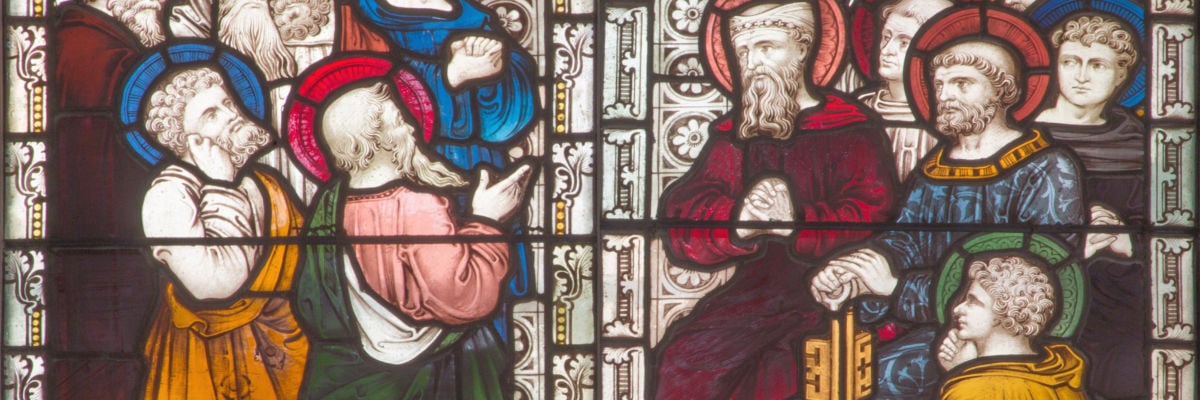
Question:
Answer:
The English word priest comes from the Greek word presbyters, which is usually directly translated as “presbyter” or “elder.” Even today, the priests of a diocese are referred to on the whole as “the presbyterate.”
The sacrament of holy orders is passed on through the laying on of hands (see Acts 6:6).
Paul writing to Timothy referred to Timothy’s ordination: “Do not neglect the gift you have, which was conferred on you through the prophetic word with the imposition of hands of the presbyterate” (1 Tim. 4:14).
Paul referring to presbyters (see 1 Timothy 5:17-22) cautions Timothy, “Do not lay hands too readily on anyone” (v. 22).
Early Christians believed that the ordination of deacon, priest, and bishop were of divine and apostolic origin:
Take care, therefore, to be confirmed in the decrees of the Lord and of the apostles, in order that in everything you do, you may prosper in body and in soul, in faith and in love, in Son and in Father and in Spirit, in beginning and in end, together with your most reverend bishop; and with that fittingly woven spiritual crown, the presbytery; and with the deacons, men of God (Ignatius of Antioch, Letter to the Magnesians 13:1–2).



